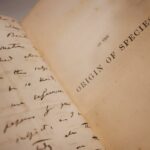Understanding the concept of evolution is pivotal to our comprehension of life and its myriad forms on Earth. It is a cornerstone of biology, providing a unifying framework for interpreting and integrating diverse biological information. Theories of evolution, in particular, offer insight into the intricate mechanisms that drive the diversity and complexity of life. This article delves into one of the most accurate theories of evolution, Darwin’s theory of natural selection, and explores its historical context, principles, supporting evidence, criticisms, and its profound impact on modern science.
Historical Overview of Evolution Theories
Before Charles Darwin and Alfred Russel Wallace, there were many theories and beliefs about evolution. Some early theories proposed that life forms could spontaneously generate from non-living matter, while others suggested that all species were immutable and had remained unchanged since the moment of their creation. However, these theories lacked empirical evidence and were often based on philosophical or religious beliefs rather than scientific observation.
Enter Charles Darwin and Alfred Russel Wallace, two naturalists who independently proposed a compelling and scientifically grounded theory of evolution. Their work marked a significant turning point in our understanding of life’s diversity and complexity.
Understanding Darwin’s Theory of Evolution
Darwin’s theory of evolution, as outlined in his seminal work “On the Origin of Species,” posits that all species of organisms arise and develop through the natural selection of small, inherited variations that increase the individual’s ability to compete, survive, and reproduce. This theory revolutionized biological thought, providing a naturalistic explanation for the diversity and complexity of life.
Central to Darwin’s theory is the concept of natural selection. He proposed that individuals with traits that confer an advantage in their environment are more likely to survive and reproduce. Over time, these advantageous traits become more common in the population, leading to evolutionary change.
Alfred Russel Wallace’s Contribution to Evolution Theory
Wallace, like Darwin, also contributed significantly to the theory of evolution. He independently proposed a theory of natural selection based on his observations and studies in the Amazon River basin and the Malay Archipelago. Wallace’s theory, while largely similar to Darwin’s, placed more emphasis on the impact of environmental pressures on species’ survival.
Comparing the two theories, both Darwin and Wallace proposed that species evolve through natural selection. However, Darwin’s theory was more comprehensive, incorporating a broader range of observations and evidence from various fields of natural history.
The Principle of Natural Selection
Natural selection is a simple yet powerful mechanism that drives evolutionary change. It operates on the principle that individuals with traits that enhance their survival and reproduction are more likely to pass on these traits to their offspring. Over generations, these traits become more prevalent in the population, leading to evolutionary change.
This process of survival and reproduction is not random but is guided by the pressures of the environment. For instance, in a population of beetles, if green beetles are better camouflaged against predators than brown beetles, they are more likely to survive and reproduce. Over time, the population becomes increasingly green – a clear demonstration of natural selection at work.
Evidence Supporting the Theory of Natural Selection
The theory of natural selection is supported by a wealth of evidence from various fields of science. Fossil records, for instance, provide a historical snapshot of life on Earth, revealing patterns of change and extinction that align with the predictions of natural selection.
Genetic evidence further bolsters the theory. Advances in molecular biology have revealed that genetic variations, the raw material for natural selection, occur spontaneously and randomly in populations. Moreover, observed evolutionary changes, such as antibiotic resistance in bacteria or changes in beak size among Galapagos finches, provide direct evidence of natural selection in action.
Criticisms and Challenges to the Theory of Natural Selection
Despite its robustness, the theory of natural selection has faced criticisms and challenges. Some critics argue that it cannot account for the complexity of life or the origin of new species. Others contend that it is a tautology, stating what is already obvious.
However, these criticisms often stem from misconceptions about the theory. For instance, the complexity of life does not contradict natural selection but is a testament to its power over vast geological timescales. Similarly, the origin of new species, or speciation, can be explained by natural selection acting on populations that are geographically isolated.
Modern Developments in Evolution Theory
Modern developments in evolution theory, often referred to as the modern synthesis or neo-Darwinism, integrate Darwin’s theory of natural selection with Mendelian genetics. This synthesis underscores the role of genetic mutations as a source of variation upon which natural selection can act.
Genetic mutations, which occur randomly and spontaneously, can introduce new traits into a population. If these traits confer an advantage, they can be favored by natural selection, leading to evolutionary change. This integration of genetics and natural selection provides a more comprehensive understanding of the mechanisms driving evolution.
Comparing Different Theories of Evolution
When comparing different theories of evolution, it becomes evident that Darwin’s theory of natural selection stands out for its explanatory power and empirical support. Other theories, such as Lamarck’s theory of acquired characteristics or the theory of orthogenesis, lack the robust empirical evidence that supports natural selection and are unable to account for the diversity and complexity of life as effectively.
The Impact of Evolution Theory on Modern Science
The theory of evolution has had a profound impact on modern science, particularly in the fields of biology and medicine. It provides a unifying framework for interpreting biological data, from the structure of DNA to the behavior of animals. In medicine, understanding evolution can inform strategies for combating antibiotic resistance, predicting disease outbreaks, and developing new treatments.
Conclusion
In conclusion, Darwin’s theory of natural selection remains one of the most accurate theories of evolution. It provides a robust, empirically supported explanation for the diversity and complexity of life on Earth. Despite criticisms and challenges, the theory continues to withstand scientific scrutiny and has profoundly shaped our understanding of the natural world. The continued research in evolution theory is crucial as it continues to inform and enrich our knowledge of life and its myriad forms.
References
- Darwin, C. (1859). On the Origin of Species. John Murray.
- Wallace, A. R. (1858). On the Tendency of Varieties to Depart Indefinitely from the Original Type. Journal of the Proceedings of the Linnean Society of London.
- Mayr, E. (1942). Systematics and the Origin of Species. Columbia University Press.
- Futuyma, D. J. (2005). Evolution. Sinauer Associates.








